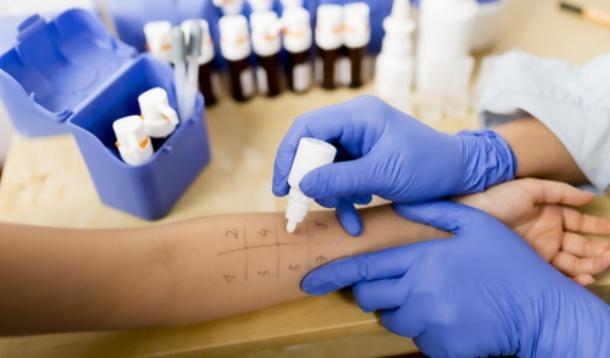
Fatal allergic reactions are a very real, very terrifying possibility for nearly 300,000 Canadian families. With the prime allergens causing anaphylaxis being nuts, eggs, milk and insects, every day activities can feel overwhelmingly stressful when working to avoid deadly reactions. Allergies interrupt our lives, they're intrusive and annoying (believe me when I tell you I'm mad I can't eat peanut butter, too).
Allergies get in the way of everything.
SickKids Hospital in Toronto is actively working to eliminate allergies by getting to their root, and solving the problems. Did you know that approximately 2% of the entire Canadian population is at risk for anaphylaxis? That's a pretty high number, and it's been rising steadily over the last 15 years. It's no wonder it feels like an allergy epidemic - with no cure and no way to predict reaction severity, it's a scary thing to try to manage.
I was able to chat recently with Dr. Adelle Atkinson of SickKids' Division of Immunology and Allergy Pediatrics. Not only is Dr. Atkinson an expert in her field, she's also got personal hands-on knowledge of how it feels to be the parent of an allergic child: her teenaged son is allergic to peanuts. Dr. Atkinson knows the daily worry of managing life with allergies, and she works diligently to ensure that patients are accurately labelled, noting that correct diagnosis is of paramount importance. The team in the Allergy Program at SickKids works to dispel misinformation and provide more accurate diagnoses and better advice. That's not easy, considering how research and advice has changed dramatically over the last five years. When my son was born in 2009 it was common practice for pregnant women to avoid eating peanut butter, and avoid feeding it to infants until at least one year of age. Research has now clearly demonstrated that this is ineffective, and in fact my have lead to sensitization for many children.
New studies focus on ways to prevent progression of anaphylaxis, and examining immune cells that could control reactions. Even more hopeful are the studies investigating ways to predict predisposition to allergies, with a target of modifying or eliminating allergic responses through genetic or drug interventions.
"In order to confirm an allergy diagnosis, it may be recommended that your child undergo skin testing, blood testing and an oral challenge. These tests help to ensure that children are correctly diagnosed, which is of paramount importance."
- Dr. Adelle Atkinson

These studies provide such hope! I honestly cannot imagine a life without the fear of losing my son to anaphylaxis anymore. Atkinson notes that this fear is very common, and that that's why accurate diagnosis and the chance to "delabel" kids is so important. She says the relief and quality of life improvement seen in families who find out a child doesn't have (and perhaps never had) a food allergy is immeasurable.
"Prevention is key," says Atkinson. With new Canadian pediatric guidelines for the introduction of food (in place since December 2013), parents are told to not change their diet while pregnant or nursing and to not delay introducing any foods, ever. More research is being done even for high risk kids, and parents are urged to discuss food introduction with their doctors to find out how to help avoid sensitizing children to foods unnecessarily. For those children who do seem to have allergies, Dr. Atkinson cannot stress enough the importance of accurate labeling of patients. Having skin and blood tests is a good first step, but food challenges are the only true way to determine if someone is at risk for anaphylaxis. Skin tests, when positive, are only about 50% accurate, indicating only that antibodies may exist, so families need the full picture for accurate diagnosis. Dr. Peter Vadas, Head of Allergy and Clinical Immunology at Toronto's St. Michael's Hospital has also had some success in predicting allergy severity using a "Platelet Activating Factor", or PAF test, but this is not something available to patients at this point, notes Dr. Atkinson.
So for now, my family, and the other 299,999 Canadian children and their families who live daily managing life-threatening allergies wait for answers with great hope, and huge thanks to the doctors and researchers out there aiming to eliminate anaphylaxis.
For more information or to make a donation to help fund this research, visit SickKids.